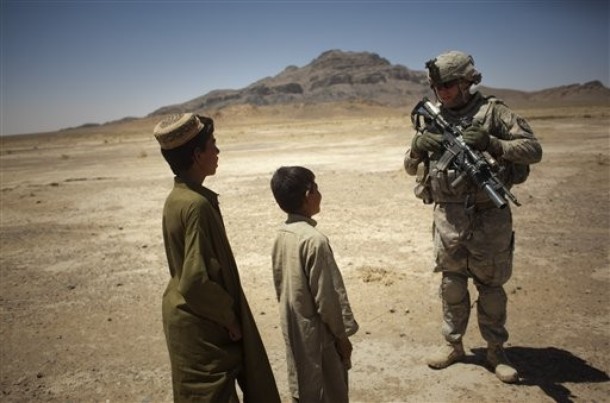Is A Withdrawal Immoral?

Writing in the Atlantic, D.B. Grady puts the Afghanistan exit strategy crowd on notice:
George Will is right: Afghanistan doesn't matter. Not to our security or our coffers. It is a humanitarian operation and nation building at its most distilled, and the United States will never recoup the blood spilled or riches depleted.But the 58% of Americans opposed to the war, opposed to a continued U.S. presence there, should have a clear-eyed view of what that means. It means condemning thousands to death, and hundreds of thousands to worse. When the Taliban returns to Kandahar and women are properly, in their view, denied any and all access to medical care and education, it should not be a surprise. It should not be a shocking revelation when homosexuals are stoned to death for the crime of existing. It's not an insidious Taliban secret to be later revealed; it is their modus operandi. The United States will not have caused it, but it will have been a party to it. We will have known something terrible was about to happen, and we will have let it. That's a lesson we learned in Vietnam, too.
By this logic, the U.S. is forever morally culpable for every act of semi-predictable violence around the globe. That's an impossible standard and one which most people - as judged by the polling Grady cites - rightly reject. It's also worth noting that even in the "ideal" outcome, Afghanistan would almost certainly remain a violent place. President Karzai signed a law that allowed men to rape their wives and control when they left the house. He backed down in the face of intense pressure, but it's not hard to imagine similar legal outrages occurring in the future, particularly if we "win" and leave Afghanistan to its own devices.
Grady goes onto write this rather eye-opening sentence, emphasis mine:
But assuming American defeat, assuming the surrender of Afghan internal affairs to the Afghan people, assuming that the neoconservative ideal followed Irving Kristol to the grave, what would Afghanistan look like to the average Afghan villager?
It takes a peculiar view of American and Afghan sovereignty to suggest that Afghanistan's internal affairs are something that we would "surrender" to them rather than being something that is rightfully theirs.





